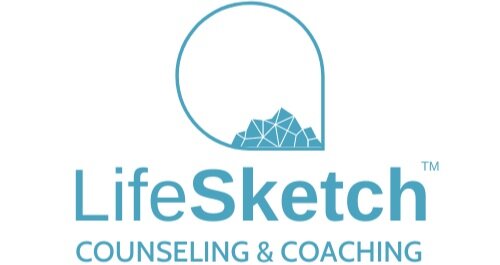Part 1: How to Job Search: A Life Coach’s Guide
Job searching can be one of the most stressful experiences in life, especially if you’re unsure about what you’re looking for or fearful of making the wrong choice. It’s easy to get overwhelmed by the sheer volume of options, paralyzed by the fear of getting stuck in a job you hate, and discouraged by the complexities of the search process itself. For many, the job search isn’t just about finding work; it’s about securing a future that feels meaningful, fulfilling, and aligned with your personal and professional goals.
Scott Treas | Career Counselor | ADHD Life Coach
Hi, I’m Scott Treas, founder of LifeSketch Counseling and Coaching. I specialize in helping adults with ADHD navigate life’s challenges, particularly in their careers. Job searching can be one of the most daunting tasks you’ll face, but you don’t have to go through it alone. In this two-part series, I’ll guide you step-by-step through the job search process, offering actionable strategies to help you reduce anxiety, stay focused, and ultimately land the job that’s right for you.
In this first article, we’ll focus on:
Overcoming the fear of getting stuck in the wrong job: Learn how to address and conquer the anxiety that often accompanies job searching, especially the fear of making the wrong choice.
Managing the complexities of job searching without burning out: Discover how to break down the job search process into manageable steps, making it less overwhelming and more efficient.
Developing clarity around your career goals: Understand the importance of having a clear direction and how it can guide your job search, making it more targeted and successful.
In the second article, we’ll dive deeper into the strategic aspects of job searching, including:
Utilizing empathy as your secret weapon for success: Learn how to approach your job search from an employer’s perspective, positioning yourself as the ideal candidate by understanding their needs.
Implementing a proven formula for job search success: Master the strategies of targeting, tailoring, and managing your job search to increase your chances of landing your desired role.
Staying resilient through the ups and downs of the process: Explore techniques to maintain your motivation and confidence, even when faced with setbacks.
By the end of this series, you’ll have a comprehensive roadmap to navigate your job search with confidence and clarity, turning a daunting task into an empowering journey toward your ideal career. Stay resilient through the ups and downs of the process
Overcoming Job Search Struggles
Fear of Getting Stuck
One of the most paralyzing aspects of a job search is the fear of ending up in a job you hate. This fear often stems from past experiences or horror stories you’ve heard from others. It’s understandable—you don’t want to spend your days dreading work, feeling trapped, and losing sight of your passions. But this fear, if left unchecked, can stop you from moving forward altogether. This fear often stems from a lack of clarity about what you truly want in a career. When you’re not sure what direction to take, the possibility of making the wrong choice feels all too real. When you know exactly what you want from your career, it’s easier to avoid roles that don’t align with your values and goals. This isn’t about being picky; it’s about being intentional.
Dreading the Job Search
The job search process itself can be tedious and downright uncomfortable. Networking feels awkward, applying to jobs is a chore, and the constant uncertainty can drain your energy. The anxiety of waiting for responses can make even the most motivated person want to give up. But here’s the truth: these uncomfortable steps are necessary to move forward, and with the right strategies, you can make them more manageable.
To combat this, break the process down into smaller, manageable steps. Set daily or weekly goals that keep you on track without overwhelming you. Remember, progress is progress, no matter how small. And importantly, change your mindset: see each task not as a burden but as an opportunity to move closer to your dream job.
Complexities of Job Searching
Job searching is complicated and can feel like a full-time job in itself. It involves more than just finding job postings and sending out resumes. You need to market yourself, navigate networking, tailor your applications, and prepare for interviews—all while managing the emotional rollercoaster that comes with it. The complexity can be overwhelming, especially if you’re also dealing with other life transitions, like a breakup, a move, or a change in status. From tailoring your resume to each job application to mastering the art of networking,
But complexity can be managed. The first step is to get organized. Create a job search plan that outlines your daily, weekly, and monthly tasks. Use tools and apps designed to help with organization, like task managers, resume builders, and networking platforms. The more structured your approach, the less overwhelming it will feel.
Why Clarity Matters
Clarity is the foundation of a successful job search. Without it, you’re shooting in the dark, applying for roles that may not suit you, and wasting time and energy.
Direction
The key to moving forward in career transitions is clarity in our direction. When you don’t know what you want, you don’t know where to go. And when you don’t know where to go, you don’t know how to get there. This lack of clarity is the root cause of many job seekers’ frustrations. It’s why they struggle to tailor their applications, why they feel like they’re just spinning their wheels, and why they eventually burn out.
Clarity in your job search starts with defining your career goals. What do you want out of your next job? What kind of work excites you? What skills do you want to use? What kind of company culture do you thrive in? These are the questions that will help you narrow down your options and create a clear job search target.
Branding
Another significant challenge is poor personal branding. Many job seekers struggle to effectively communicate their value to potential employers. They either don’t know how to articulate what makes them unique or they’re not sure how to position themselves in a way that stands out in a crowded market.
Clarity also strengthens your personal brand. When you know what you’re looking for, you can tailor your resume, cover letter, and LinkedIn profile to showcase how your skills, experience, and values align with your target roles. This makes you more attractive to potential employers and increases your chances of landing interviews.
Confidence
As discussed, a way to build confidence is by gaining clarity on your career goals. When you know what you want, you’re more confident in your decisions and more motivated to take action. Another way is to focus on your strengths and accomplishments. Remind yourself of what you’ve achieved and how those achievements can benefit your future employer.
But confidence also comes from taking action. The more you do—networking, applying, interviewing—the more confident you’ll become. Each small step forward builds momentum and reinforces your belief in yourself.
Finally, don’t be afraid to seek support. Whether it’s a career coach, a mentor, or a friend, having someone to guide you and offer encouragement can make a big difference. Sometimes, the biggest barrier to confidence is feeling like you’re in it alone. But you don’t have to be. There are people who want to help you succeed, and reaching out to them can be a powerful step in building your confidence.
The Job Search Success Formula: Empathy, Targeting, Tailoring, and Management
Now that we’ve identified the key challenges, it’s time to flip the script. Let’s talk about the strategies that can help you overcome these obstacles and turn your job search into a success story.
The Secret to Success: Empathy - It’s Not About You
The first step in mastering the job search is shifting to an empathetic perspective. Empathy might seem like an odd word to associate with job searching, but it’s actually the secret to successful careers. Many people approach job searching from a place of “What can I get out of this?” While it’s natural to focus on your own needs, this approach often leads to disappointment.
Empathy allows you to understand the needs and pain points of potential employers. When you approach your job search from a place of empathy, you’re not just thinking about what you want—you’re offering to help the employer succeed. By understanding the employer’s point of view, you can position yourself as the solution to their problems. This empathy-driven approach is the key to standing out in a competitive market. This mindset shift can transform your job search from a self-centered task into a collaborative effort, dramatically improving how you present yourself in applications and interviews.
Targeted Search: Title, Field, Status, Employer
With empathy as your foundation, the next step is to target your search. A scattershot approach to job searching is not just inefficient—it’s demoralizing. Instead of doom-scrolling job boards and submitting as many applications as you can, be specific about what you’re looking for. So, narrow your focus to specific job titles, industries, and companies.
When you know what you’re looking for, you can tailor your resume, cover letter, and LinkedIn profile to align with the specific roles and companies you’re interested in. You can also focus your networking efforts on the right people and opportunities.
Targeting your job search allows you to showcase your value more effectively. Employers are looking for candidates who can solve their problems, contribute to their success, and fit within their team. When your professional identity and personal brand are aligned with the needs of the employer, you’re more likely to stand out as a strong candidate.
But targeting isn’t just about landing a job; it’s about landing the right job. The job that will help you grow, provide opportunities, and give you the autonomy and respect you desire. When you’re clear on your target, you’re not just settling for any job—you’re pursuing a career that aligns with your long-term goals.
Title: What roles are you genuinely interested in and qualified for? Don’t waste time applying to jobs that don’t align with your skills or career goals.
Field: Which industries resonate with you? Focus on sectors where your skills are most applicable and where you see long-term growth potential.
Status: Are you looking for full-time, part-time, freelance, or contract work? Be clear about your availability and preferences.
Employer: Research companies that align with your values and career aspirations. Look for organizations where you can see yourself thriving.
Tailored Applications: Unique Value Proposition and Reverse Engineering
Once you’ve identified your target, it’s time to tailor your application materials. Generic resumes and cover letters don’t cut it in today’s competitive job market. Tailor your application materials to each job you apply for. Highlight the skills and experiences that are most relevant to the role. Use the company’s language and values to show that you’re a good cultural fit.
Tailoring our job search is about crafting a Unique Value Proposition (UVP) for each opportunity. Your UVP is what sets you apart from other candidates. It’s the unique combination of skills, experiences, and perspectives that you bring to the table. To create a compelling UVP, start with empathy by reverse engineering the job description. What are the key skills and qualifications the employer is looking for? How can you demonstrate that you meet or exceed these requirements?
Tailoring your resume, cover letter, and LinkedIn profile to each job application shows employers that you’ve done your homework and that you’re serious about the role.
Managed Approach: Structure, Strategy, and Support
A successful job search isn’t something you can do haphazardly. It requires structure, strategy, and support. Because job search can quickly become overwhelming if you don’t have a plan in place. You can create a job search schedule that includes time for networking, researching, applying, and following up. Set specific goals, like applying to a certain number of jobs each week or attending a networking event every month. The key is consistency—regular, focused efforts will yield better results than sporadic bursts of activity.
Structure: Create a job search schedule. Dedicate specific blocks of time each day to searching for jobs, networking, and refining your application materials.
Strategy: Have a plan in place. Know what steps you need to take and in what order. This could include researching companies, reaching out to contacts, and preparing for interviews.
Support: Don’t go it alone. Seek out mentors, career coaches, or job search groups that can provide guidance and encouragement.
Summary (Key Takeaways from Part 1):
Overcome the Fear of Getting Stuck: Address the anxiety around making the wrong career choice by gaining clarity about your career goals and aligning them with your values and aspirations.
Manage the Complexities of Job Searching: Break down the job search process into manageable steps, creating a structured plan to avoid burnout and stay focused.
Develop Clarity Around Career Goals: Define your career direction to target roles that truly resonate with your skills, interests, and long-term objectives.
Utilize Empathy in Your Job Search: Shift your perspective by focusing on the needs of potential employers, positioning yourself as a solution to their challenges.
Target and Tailor Your Applications: Be strategic in your job search by targeting specific roles and industries, and tailoring your application materials to showcase your unique value proposition.
Implement a Managed Approach: Create a structured plan with clear goals, consistent efforts, and seek support from mentors, coaches, or job search groups to keep you on track.
Preview for the Next Article (Part 2):
In the upcoming second part of this series, we'll take a deeper dive into the strategic aspects of job searching. We’ll explore how to:
Utilize Empathy as Your Secret Weapon: Learn how to view the job search from an employer’s perspective, helping you position yourself as the ideal candidate.
Master the Job Search Success Formula: We’ll break down the proven strategies of targeting, tailoring, and managing your job search to increase your chances of landing your desired role.
Stay Resilient Through the Ups and Downs: Discover techniques to maintain your motivation and confidence throughout the job search process, even when faced with setbacks.
By the end of this two-part series, you’ll have a comprehensive roadmap to navigate your job search with clarity, confidence, and strategic insight, turning what can be a daunting task into a journey toward your ideal career. Stay tuned for Part 2, where we’ll equip you with the tools to refine your approach and achieve job search success!
Feeling Overwhelmed by the Job Search?
Don’t Settle for a Job You Hate!
If you’re ready to take your job search to the next level, don’t hesitate to reach out for personalized coaching and support. Schedule your free discovery call now and let us help you accelerate your job search journey and take your career to the next level!
CAREER CHANGE ACCELERATOR
Hybrid Life and Career Coaching
Step-by-Step Guidance for Starting or Changing Your Career
✔ Career Direction: Figure out what you want, where you fit, and decide “what’s next?”
✔ Job Search Success: Develop the insight, strategies, and tools for an effective job search.
✔ Confidence and Motivation: Crush doubt and uncertainty so you can feel energized and excited to take action.


